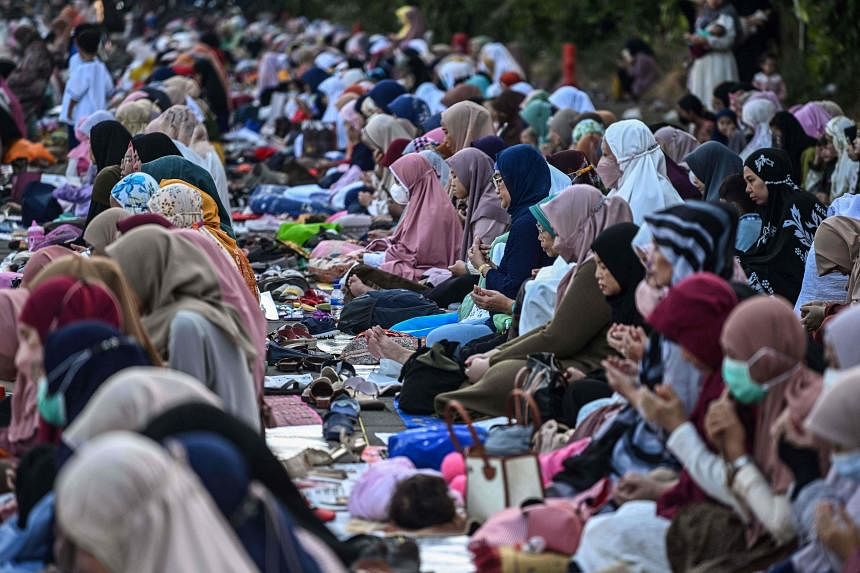Indonesians happy with longer Hari Raya Haji holiday but some ... - The Straits Times

JAKARTA – Indonesian Muslims began their five-day Hari Raya Haji holiday on Wednesday, the longest granted by the government in what critics say is a populist move by President Joko Widodo.
The decision has drawn flak from business associations. They cited issues such as reduced productivity, disruption of export-import activities, and additional overtime costs for those who have to work during the extended holiday.
In Indonesia, this year’s Hari Raya Haji falls on Thursday. Besides the usual one-day holiday, the government has declared two extra days of holiday, bringing the total to five, including the weekend.
The reasons for giving additional days off include spurring economic growth and tourism, and a chance to hold family gatherings.
Businesses are also unhappy over the timing of the extended holiday’s announcement, which was made only a week earlier.
According to an industry association, textile factories, for instance, have to keep their equipment running as predetermined manufacturing schedules mean that the plants cannot be shut down at such short notice.
And paying employees to work during the extra days of holiday would incur a total of 575 billion rupiah (S$52 million) in extra costs, comprising mainly overtime wages.
Entrepreneur Sofjan Wanandi, a former chairman of the Indonesian Employers Association, said that if the extension of a public holiday becomes a norm, it could put the country at a disadvantage in terms of productivity, compared with its neighbours. The Hari Raya Idul Fitri holiday in April was extended from four days to five.
“Indonesia’s 40-hour work week, to begin with, is already less competitive than its competitors that adopt a (nearly) 50-hour work week,” said Mr Sofjan.
In Vietnam – Indonesia’s competitor in textile and footwear exports, among others – regulations stipulate that normal working hours shall not exceed 48 hours per week, mirroring Thailand’s, which is Indonesia’s main rival in vehicle assembly.
In Indonesia, hours clocked beyond 40 a week are considered overtime, according to regulations.
Mr Danang Girindrawardana, secretary-general of the Indonesian Textile Association, said the haphazard decision on additional days-off could hurt businessmen in many ways, including an abrupt increase in labour costs.
About 250 textile companies will be affected by the five-day holiday, with losses estimated at 575 billion rupiah, he noted, adding that this is unfortunately taking place when many factories are catching up with rising production targets.
“This would have domino effects on other sectors,” Jakarta-based business news portal Bisnis.com quoted Mr Danang as saying.
Mr Bhima Yudhistira, director at the Centre of Economic and Law Studies, said the government’s decision was a populist move which comes at a time when manufacturers are getting more orders amid a post-Covid-19-pandemic recovery.
He argued that it was taken in the light of the presidential election in February 2024, when Mr Widodo – while not seeking re-election – needs to stay popular as he gears up to endorse one of the contesting presidential candidates. Declining popularity would weaken the effectiveness of his endorsement.
But most Indonesians are not complaining. They are flocking to amusement parks, going on staycations and travelling during the long break.
from "holiday" - Google News https://ift.tt/Ftzs3we
via IFTTT
Comments
Post a Comment